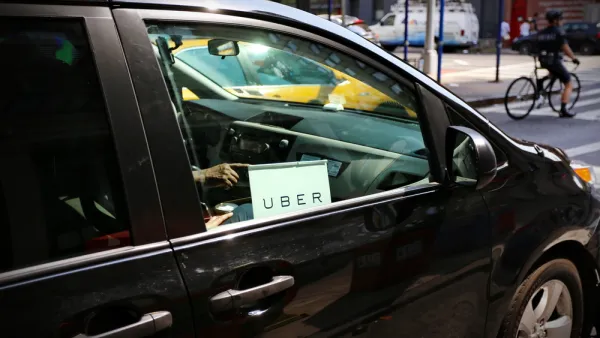The era of cheap, on-demand services is coming to a close as unprofitable startups face the realities of capitalism.

Writing in The Atlantic, Derek Thompson warns of the “end of the millennial lifestyle subsidy,” that blissful era when Uber rides across town cost a few dollars and you could have a meal delivered from any restaurant for a nominal extra fee. “Almost each time you or I ordered a pizza or hailed a taxi, the company behind that app lost money. In effect, these start-ups, backed by venture capital, were paying us, the consumers, to buy their products.”
Yet investors continued to support companies that grew their user bases while losing money. “As long as money was cheap and Silicon Valley told itself the next world-conquering consumer-tech firm was one funding round away, the best way for a start-up to make money from venture capitalists was to lose money acquiring a gazillion customers.”
Now, those companies are facing a reckoning. “These start-ups weren’t nonprofits, charities, or state-run socialist enterprises. Eventually, they had to do a capitalism and turn a profit.” By 2022, “Rising interest rates turned off the spigot for money-losing start-ups, which, combined with energy inflation and rising wages for low-income workers, has forced Uber, Lyft, and all the rest to make their services more expensive.”
Meanwhile, improved labor market conditions mean that workers have more leverage over employers. “Today, job openings are historically plentiful and nominal wages are rising fastest for low-income workers.”
It turns out, Thompson concludes, “The golden age of bougie on-demand urban-tech discounting has come to a close.” We may now have to go back to paying the real cost of products and services.
FULL STORY: Why Urban Life Suddenly Got Way More Expensive

Analysis: Cybertruck Fatality Rate Far Exceeds That of Ford Pinto
The Tesla Cybertruck was recalled seven times last year.

National Parks Layoffs Will Cause Communities to Lose Billions
Thousands of essential park workers were laid off this week, just before the busy spring break season.

Retro-silient?: America’s First “Eco-burb,” The Woodlands Turns 50
A master-planned community north of Houston offers lessons on green infrastructure and resilient design, but falls short of its founder’s lofty affordability and walkability goals.

Test News Post 1
This is a summary

Analysis: Cybertruck Fatality Rate Far Exceeds That of Ford Pinto
The Tesla Cybertruck was recalled seven times last year.

Test News Headline 46
Test for the image on the front page.
Urban Design for Planners 1: Software Tools
This six-course series explores essential urban design concepts using open source software and equips planners with the tools they need to participate fully in the urban design process.
Planning for Universal Design
Learn the tools for implementing Universal Design in planning regulations.
EMC Planning Group, Inc.
Planetizen
Planetizen
Mpact (formerly Rail~Volution)
Great Falls Development Authority, Inc.
HUDs Office of Policy Development and Research
NYU Wagner Graduate School of Public Service




























